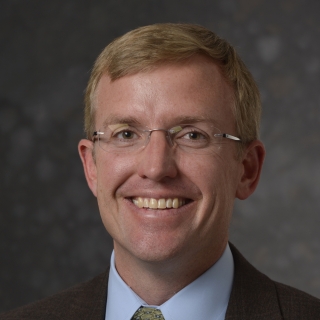Timothy D. Hall

Dr. Timothy D. Hall is an assistant head of the Space Systems and Technology Division at MIT Lincoln Laboratory. His expertise is in statistical signal processing, tracking algorithms, multi-sensor fusion, and radar systems engineering. Hall started at Lincoln Laboratory in 1996 as a research assistant in the Air Traffic Control Systems Group. In 2003, he joined the Laboratory full time and continued his work on position, navigation, and timing systems and then transitioned to radar tracking algorithms for air surveillance sensors.
Hall received BS and MS degrees in electrical engineering from the University of Missouri, and a PhD in electrical engineering from MIT. At MIT, he designed and built a radio navigation system that achieved meter-level positioning accuracy using only AM radio station broadcasts as signals of opportunity, leading to a U.S. patent. He joined the technical staff in the Air Traffic Control Systems Group at Lincoln Laboratory in 2003. His initial assignment was working on airspace access issues for unmanned aerial vehicles. He also successfully led the sensor fusion effort for the Enhanced Regional Situational Awareness system, developing and implementing advanced algorithms.
Hall transferred to the Reagan Test Site (RTS) on Kwajalein Atoll in 2006 for a five-year tour. His first assignment at RTS was to help complete the modernization of the Kwajalein Mobile Range Safety System (KMRSS), which is a ship-borne telemetry tracking and missile range safety system. He became the lead system engineer at the ARPA-Lincoln C-Band Observables Radar (ALCOR) in 2007 and then the Tracking and Discrimination Experiment Radar (TRADEX) in 2008. He became the key system engineering resource on Roi-Namur in Kwajalein, providing expertise on a wide range of radar technical issues, and was named the lead systems engineer for the Kiernan Reentry Measurements Site (KREMS). During this time, he also led a number of operations, both as test director and mission director, for missile defense tests and special space operations. Hall had numerous technical accomplishments while at RTS, including algorithm design for improved new foreign launch scans at TRADEX and the ARPA Long-Range Tracking and Instrumentation Radar (ALTAIR); development of a technical architecture and business plan for an upgrade to TRADEX S-band; and successful execution of the KMRSS high-power amplifier integration and testing. Hall was promoted to assistant site manager of the Lincoln Laboratory group at RTS in 2010 and spent his last year on Kwajalein managing the improvement and modernization programs at RTS while assisting with the transition of RTS operations from Kwajalein to Huntsville, AL.
Upon returning to Lexington in 2011, Hall became an assistant leader in the Advanced Sensors and Techniques Group and took on the role of deputy program manager for the RTS Space Portfolio. He was promoted to associate leader in December 2014. In these positions, he provided strategic leadership for the Tactical Space Situational Awareness (SSA) Initiative and developed the RTS Strategic Plan for Space. He worked with U.S. Strategic Command to update the RTS Program Requirements Document to reflect national imperatives, leading to significantly higher impact utilization of RTS sensors for Tactical SSA. In addition to developing the strategic vision for Tactical SSA, he led the execution of a series of experiments and test beds to better understand the issues impeding tactical SSA, and developed techniques and a concept of operations to overcome these impediments.
Hall was promoted to leader in 2016, where he continued to be an advocate for innovation while developing a high-impact portfolio focused on on-orbit test instrumentation, electronic warfare, and space surveillance sensors. He was also instrumental in the development of the Laboratory’s U.S. Special Operations Command portfolio and the initiation of the National Space Test and Training Complex. Hall has broadly contributed to the Laboratory community, serving on the Lincoln Scholars Committee since 2012, on the Group Leader Forum from 2015 to 2022, on the New Technologies Initiative Board from 2014 through 2015, and as a National GEM Consortium recruiter for Division 9.